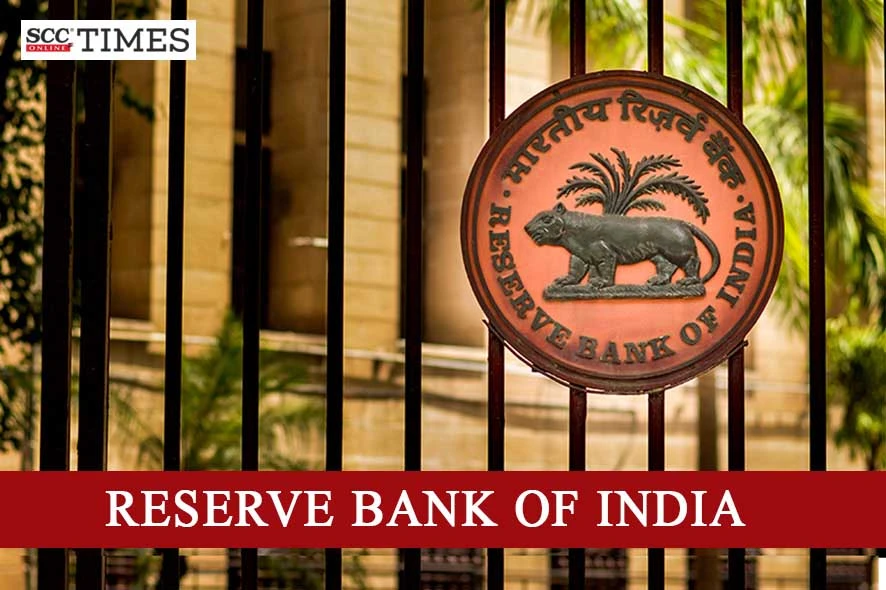On 1-4-2025, the Reserve Bank of India notified the Reserve Bank of India (Interest Rate on Deposits) Directions, 2025 providing a framework for banks to follow while formulating their policies on Interest Rates on Deposits. The provisions came into force on 1-4-2025.
Key Points:
-
The provisions of these directions are applicable on all banks authorised to operate in India.
Exception: Foreign branches of Indian banks.
-
Interest Rate Framework:
-
Banks will have to pay interest on deposits, other than current account deposits, which have been accepted by them in their domestic:
-
Ordinary Non-Resident account (‘NRO’);
-
Non-Resident (External) Account (‘NRE’);
-
Foreign Currency (Non-resident) Accounts (Banks) Scheme (‘FCNR(B)’) deposit account.
-
-
Terms and conditions to be followed:
-
Need to have a comprehensive policy on interest rates on deposits duly approved by the Board of Directors/ any committee of the Board to which the powers have been delegated;
-
Rates should be uniform across all branches and for all customers;
-
Interest rate payable should be strictly as per the schedule of interest rates disclosed in advance;
-
Commercial banks should maintain a bulk deposit interest rate card in their Core Banking System to facilitate supervisory review;
-
Rates will not be negotiable between depositors and the bank;
-
Transactions will be rounded off to the nearest rupee for rupee deposits and to 2 decimal places for FCNR(B) deposits.
-
-
Maturity of deposits:
-
On non-business working day/Sunday/ holiday for commercial banks/ co-operative banks: interest payable at originally contracted rate on the original principal deposit amount for non-business working day/ Sunday/ holiday, which intervene between the date of maturity and the date of payment of the proceeds of the deposit on the succeeding working day;
-
In case of reinvestment: interest will be paid for the intervening non- business working day on the maturity value.
-
-
-
Prohibitions on banks:
-
Banks cannot pay any remuneration fees/ commission/ brokerage/incentives on deposits in form to any individual/firm/ company/ association/ institution except for:
-
commission paid to agents employed to collect door-to-door deposits under a special scheme;
-
commission paid to Direct Selling Agents/ Direct Marketing Agents as part of the outsourcing arrangements by commercial banks;
-
remuneration paid to Business Facilitators/ Business Correspondents;
-
incentives granted to staff members of co-operative banks as approved by Reserve Bank of India.
-
-
Offer prize/ lottery/ free tips any other initiative having element of chance for mobilizing deposits.
-
Resort to unethical practices of raising of resources through agents/ third parties to meet the credit needs of the existing/ prospective borrowers or to grant loans to the intermediaries based on the consideration of deposit mobilisation.
-
Issue any advertisement/ literature soliciting deposits from public highlighting only the compounded yield on term deposits without indicating the actual rate of simple interest offered by the bank for the particular period.
Simple rate of interest per annum for the period of deposit should be indicated invariably.
-
Accept interest-free deposit other than in current account or pay compensation indirectly.
-
Grant advances against term deposits maintained with other banks.
-
Create any fund to be utilized for charitable purposes in consultation with the depositors.
-
-
Prohibition Exemptions:
-
Payment of interest on delayed collection of outstation instruments like cheques, drafts, bills, telegraphic/ mail transfers, etc.
-
Deposit received by bank:
-
from the institutions permitted to participate in the Call/Notice/Term Money Market both as lenders and borrowers;
-
for which it has issued a participation certificate;
-
under the Capital Gains Accounts Scheme, 1988 for commercial banks;
-
under the Certificate of Deposit Scheme for commercial banks.
-
-






